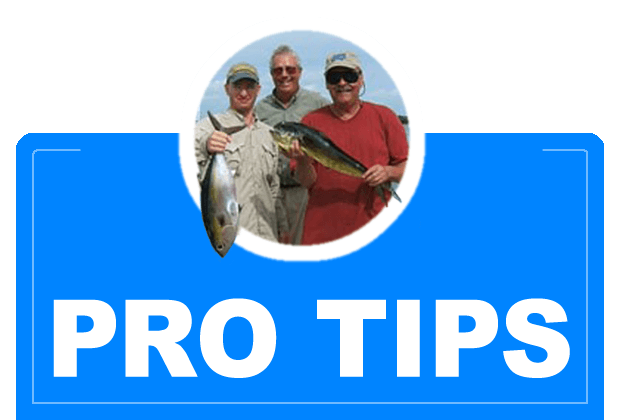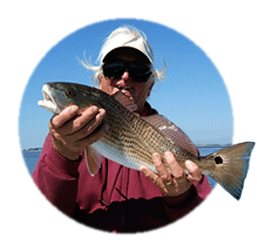Nearshore Trolling Techniques for an Exciting Day!
Nearshore Trolling Techniques: Small boaters are very lucky to live in our SENCLAND area as the nearshore opportunities for different fish is outstanding. On a calm day, slight or no swell, light wind and seas where our inlets can be easily passed by any size vessel, fisherman can cover a lot of various territory. We even see surfers paddling across these inlets in search of the better wave and Kayaks too are there, so don’t be surprised what watercraft you see trolling the beaches. From Sunset Beach to Onslow Beach there are many summer days the ocean is slick calm…. just navigating the inlets and their sand bars and shoals require good attentive seamanship! Once outside the inlet after passing the last sand bar, it can get so calm a breeze would be welcomed just for a breath of air. Watching for the birds to dive, they show us anglers the schools of bait fish where lurking just below these bait balls could be nice Bluefish, Spanish Mackerels, King Mackerels, even Sharks, so let’s go trolling and have some fun!
Rigging for the inshore trolling is quite simple. A good reel loaded with 20 to 30 pound test monofilament is a good start, and a couple of hundred yards of Line is not unusual. Add this reel to a medium to medium heavy 6 to 7 foot rod and your trolling outfit is basically complete. Your Rod Tip action is a most personal choice. Many like a lighter tip for the “give” of the hook set impact from the fish strike! Set your reel drag to hold the pressure of the trolling planner but not so tight that a bigger than expected fish doesn’t break your rig to start! Many a Small trolling lure has been attacked by a large fish… remember, “elephants eat peanuts!”
Now comes some choices to use for your trolling endeavors. To get your lure down deep under the water’s surface, many attach a small planer, a gadget that provides depth control of your lure as it is dropped back behind the boat. Attached to this planner is your leader, 15 to 20 pound monofilament line that can be as long as fifty feet to as short as 10 to 15 feet. Leader length will require experimentation on your part as the day progresses to determine the most successful length. At the end of your leader is your lure and the Carolina Coast special is the famous Clark spoon. They come in different sizes, color combinations, and types of riggings. Start small and simple, one lure per line. The small silver spoon is a go to lure. Then work your way up to the larger lures or combination of lures if needed. Try different colors….some days that simple action may improve success or failure numbers. When tying your lure to your mono leader use a “loop knot” to allow the lure to flip and flutter at it’s maximum action! Just a few notes to help get the proper action on your baits!
When placing your lures on the planners behind your boat, count slowly as you let the line out while dropping the planner into the water. One lure may go back for 10 to 12 seconds, then set the other trolling rod back for a 5 to 6 second count…..that way you are presenting your lures at two different depths (the longer being the deeper lure) and distances from the boat. These depths or counts may need to change as the fish schools move to various depths. In deeper water you may need to go a 20 count or more! ..shallower depths may require as little as a three count. You will have to experiment and change depths as the fish change also! Find their pattern and proceed to hunt!
After you have your planner rods set and fishing, note your bent rod tip! This is the water pressure pulling downward on your trolling planner, sort of like as kids we would put our hands out the window of a car and “fly”our hands! When the fish strikes the lure, the planner will release the built up pressure, the rod tip will dance about and rise quickly showing that a fish has struck the lure and then it is up to you to reel the planner to the rod tip, a slow and steady retrieve, no jerking motion allowed as this will free the fish, then reach out and grab the leader line, and “hand over hand” proceed to pull the fish alongside the boat and in one swift lifting motion bring the fish over the rail and into the boat.
A hint here, and it is a big hint,…..as you pull the leader to the boat, keep your slack line low to the water and let the slack line trail back behind the boat so when you land the fish, the leader line is straight and not “ balled up “ or tangled…then it is easy to simply toss the lure off the side of the boat and it will go back to fishing with no kinks or tangles in your leader line. You’re set for the next fish after returning your planner to its proper depth!
Besides the diving planner, one can use a “Torpedo” lead weighing from a half ounce up to three or more ounces to pull behind the boat as a midsurface lure…..no planner, just the lead to get the lure down. These are long slender leads that cause little wake while carrying your lure down in the water column. Same rules as the leader length for planners apply, but generally not quite as long in length. Experimentation is good. Land the fish the same as you would the planner rod being careful to avoid tangles and loops if at all possible.
And many anglers always keep a “light line rod” rigged and ready to sight cast as a backup. It can consist of a small torpedo lead tied directly to your line and five to six feet of leader to your lure. Here some fisherman will continue to use a Clark spoon, but others may forego the light lead and tie a weighted casting lure such as a Hopkins stainless steel lure or Jigfish lure directly to their line for casting weight and throw only this lure into schools of breaking fish on the surface.This action requires a very rapid retrieve to make the lure work properly, but the reward of a hard busting strike can put one’s heart in your throat quickly! And on occasion, one can throw this rig out and proceed to troll it on the surface too!
And finally we get to the “Greedy Rig” made with small bungee cords tied directly to the stern of your boat, (usually to the tow eyes or even low on your handrails). Once again use a Clarkspoon of your choice and color tied to 20 feet or longer monofilament leader material, then a small 1/2 ounce torpedo lead (this weight is optional), then 20 feet of light nylon rope,…yes rope, tied to a small 3’ bungee cord which is then attached to your boat! Kids love to fish this rig! As you’re trolling along, notice the dip in the line going back to the lure….on a strike, the line and bungee (shock absorber) will start to “Dance About” from the impact! Then simply grab the rope line and “hand over fist” proceed to pull the fish to the stern or side of the boat and with once again with one easy swift lifting motion, bring the fish into the boat! And as stated before, be careful returning the slack line to the water to keep your leader line from looping, tangling, or kinking as you bring your fish in. Kids need some coaching here but Kids of all ages love this action and technique!
Don’t be surprised at catching Spanish Mackerels or Bluefish, and every once in a while a King Mackerel or Shark May appear! Fishermen also have landed various small tunas, Flounder, and even a full grown Cobia (and that required some special handling and gloves) to land that animal! You are fishing in the ocean and nothing surprises me there…..
So be careful, enjoy your day and efforts, and take that youngster along to pull the lines! You’ll have a ball and so will he! Tight lines and Strong Knots to all…
About the Author: Captain Charlie Schoonmaker grew up on the waters of North Carolina which has given him experience in all water sports from freshwater canoeing to deep sea “bluewater” fishing. Having seen all aspects of the ocean world Capt. Charlie can appreciate all the fishing and water communities. Capt. Charlie has over 50 years of local knowledge and experience fishing the Beautiful Southeastern Coast of North Carolina (SENCland). He continues operating his charter fishing business “Back Bay Fishing Charters” and his new family oriented excursions “Capt. Charlie’s Adventures” in Carolina Beach, N C. Ready to fish, Call: 910-262-3474



 About the Author: Captain Charlie Schoonmaker grew up on the waters of North Carolina which has given him experience in all water sports from freshwater canoeing to deep sea “bluewater” fishing. Having seen all aspects of the ocean world Capt. Charlie can appreciate all the fishing and water communities. Capt. Charlie has over 50 years of local knowledge and experience fishing the Beautiful Southeastern Coast of North Carolina (SENCland). He continues operating his charter fishing business “
About the Author: Captain Charlie Schoonmaker grew up on the waters of North Carolina which has given him experience in all water sports from freshwater canoeing to deep sea “bluewater” fishing. Having seen all aspects of the ocean world Capt. Charlie can appreciate all the fishing and water communities. Capt. Charlie has over 50 years of local knowledge and experience fishing the Beautiful Southeastern Coast of North Carolina (SENCland). He continues operating his charter fishing business “